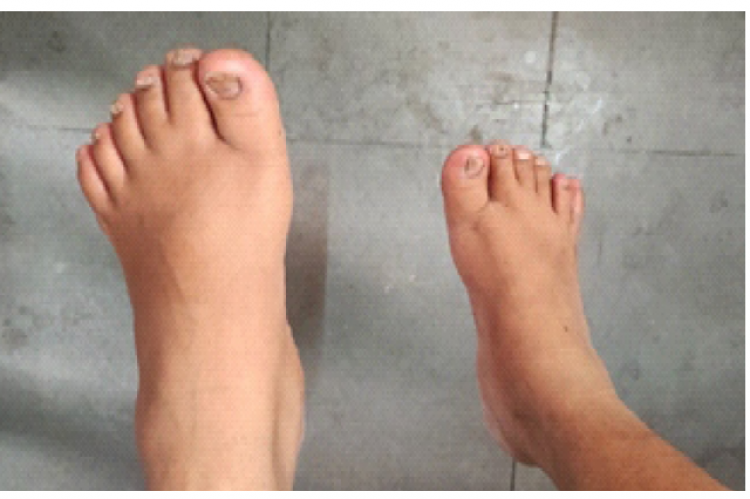The Bardet-Biedl Syndrome (BBS) is a rare autosomal recessive disorder that primarily affects children born to consanguineous marriages. Cone-rod dystrophy, polydactyly, obesity, learning difficulties, hypogonadism in males, renal abnormalities, nystagmus, speech disorders, developmental delay, polyuria/polydipsia, ataxia, and poor coordination/clumsiness are all common symptoms of this condition. This syndrome has been related to twenty-one different loci (BBS1-BBS21). BBS is usually not diagnosed until the patient begins to exhibit the visual impairments that are hallmark of rod-cone dystrophy, unless the diagnosis is suspected based on antenatal imaging demonstrating polydactyly and structural kidney abnormalities. The current treatment for Bardet–Biedl syndrome is symptomatic, with a focus on intensive care of diabetes, hypertension, and metabolic syndrome to reduce the secondary effects of these illnesses on susceptible organ systems already compromised by BBS, particularly the eyes and kidneys. The patient was admitted with known complaint of bardet biedl syndrome, chronic kidney disease stage 4, hypothyroidism and with chief complaints of pedal oedema, shortness of breath, decreased urine output, pedal oedema, abdominal distention, facial puffiness. Symptomatic treatment is prescribed along with hemodialysis ( thrice a week).
View:
- PDF (149.54 KB)


